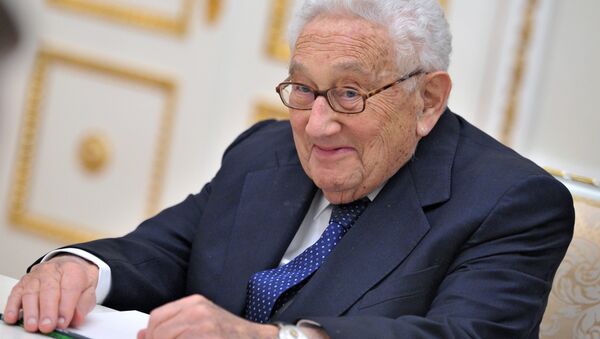WASHINGTON, September 16 (RIA Novosti) - The emergence of the Islamic State (IS) group is an inevitable outcome of almost a century of upheaval and evolution in the Middle East, Henry Kissinger, former US Secretary of State and adviser to multiple presidents, said Monday.
“I consider ISIS sort of almost an inevitable outcome of the evolution of an upheaval that has a whole set of different components,” Kissinger said in a Monday address to the Center for Strategic International Studies.
“It [is] an upheaval against constituted authority. It’s an upheaval caused by the split between the Shia and Sunni religions and sects... And it’s a revolution against an artificial state system that was imposed in the Middle East ... after the first World War,” he said.
The Islamic State (IS) militant group, also known as the Islamic State of Iraq and Syria (ISIS) or the Islamic State of Iraq and the Levant (ISIL), has been fighting the Syrian government since 2012 and started launching attacks in northern and western Iraq in June, 2014. IS militants have seized vast areas in both countries and have proclaimed an Islamic caliphate on all the territories under its control.
Kissinger served under multiple presidents as Secretary of State and advised numerous others on foreign policy since the 1970s. His appearance at CSIS featured lengthy discussion of his latest book, World Order, which tackles the 21st century challenges of a more integrated world order among nations with often very divergent views and historical perspectives.
The basis for the current map of the Middle East is “a line of demarcation between French and British imperial interests,” Kissinger said, adding that such divisions, make it “very difficult to speak of a national feeling in the sense that we know it in the West.”
Regarding the risks the United States and its allies currently face, Kissinger said American foreign policy has no room for open-ended conflicts as they are impossible to maintain.

